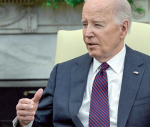You are here
To revamp the UN
May 31,2014 - Last updated at May 31,2014
The repeated failure of the UN system, including the UN Security Council, to resolve world conflicts is testament to its inherent structural and political weakness.
Ever since its creation in 1945, the UN’s track record on conflict resolution is near zero.
The list of failures is long and includes the Cold War era tensions, the Vietnam war, the Sino-Indian conflict, the Palestinian crisis, now in its 70th year, and, more recently, the civil war in Syria.
This is not to mention, of course, the Ukrainian situation that culminated in the annexation of Crimea by Russia and threatens dismembering what is left of the country.
Images of death and destruction in Syria have been shown for nearly four years, with the latest figures by UN sources putting the number of those killed at well over 160,000.
Then, how can the world forget the genocide in Rwanda, in the mid-1990s, the atrocities in the Central African Republic, Congo or Myanmar, or the use of chemical weapons in Iraq by the Saddam Hussein’s regime?
In the 1970s, Argentina and Chile were the scene of systematic grave violations of human rights.
So what does all this utter and shocking failure tell the international community?
For one thing, this dismal record suggests that the UN system is a palliative at best. It also suggests that the UN system is overdue for a comprehensive overhaul.
Too much money, time and effort have been invested in the UN to perfect, and fixing it would seem easier than replacing it altogether with a new international system.
Reforming the UN system would need more than structural changes, since in the final analysis, it is the state parties that make or break the entire UN infrastructure.
A most direct way to start the process of reformation is to limit membership in the UN to free and democratic nations.
Yes, excluding the nations that do not abide by the letter and spirit of the UN Charter should be accepted by the international community.
True, that would mean not having a universal system, but on balance, that would be much better than having a global club of nations whose members do not honour their commitments to the principles and ideals of the UN Charter.
The conditions for membership must be restored and honoured.
There is need of a smaller UN whose members are willing to refer their differences to the International Court of Justice not only for an effective and obligatory judgement that binds nations.
Nations that are left out or asked to leave will have to try harder to rejoin, if they do not want to be ostracised.
Lest we should forget, the League of Nations was founded by the Paris Peace Conference at the end of World War I. It was the first ever attempt to create a working inter-governmental organisations to prevent wars and settle disputes between nations.
After 27 years it “died”, having proved that it failed to prevent the aggression of the Axis powers.
After Germany withdrew from the league, other powers, including Italy, Spain and Japan, followed.
It was the obvious failure of the league to prevent and combat aggression that prompted the international community to create yet another inter-governmental organisation at the end of World War II. It was named the UN.
Now there is need for another international organisation.
The same logic that declared the league dead would apply now in favour pronouncing the UN dead, giving way to the creation of another inter-governmental organisation of like-minded nations to replace it.













